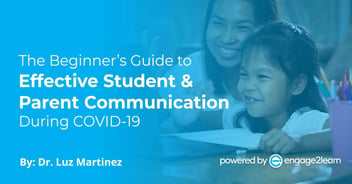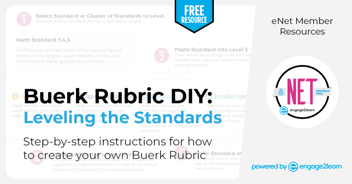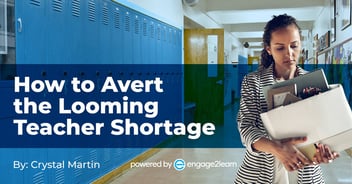Continuing the Work of Equity | engage2learn
In recent years, there has been a growing recognition of the importance of equity and inclusivity within educational settings. The work of creating a more equitable society starts in our classrooms, where educators play a pivotal role in shaping the minds of future generations. While progress has been made, the journey towards achieving true equity is ongoing, requiring a collective effort from all stakeholders involved.
Over the past few weeks, I have been so inspired and honored to read and watch so many of our partner districts state their commitment to fighting against racism. It is readily apparent to me that these were more than obligatory statements; they are heartfelt and thoughtful catalysts for action.
Equity in education involves multiple critical steps:
- Educators can work towards overcoming implicit biases.
- Teachers can ensure instructional practices are fair and unbiased.
- Schools can promote an inclusive school environment where every student feels valued and respected.
- School districts can strive to incorporate diverse perspectives, experiences, and voices into their curriculum and instructional materials.
- Education strategic planning in school districts can create classrooms and educational systems that empower all students to thrive, regardless of their backgrounds or circumstances.
As educators, we have the power to shape the future and create a more equitable society. Continuing the work of equity requires intentional efforts from all educators to reflect on their biases, foster inclusivity, build meaningful relationships, address disparities, and engage in continuous learning.
After I shared my feelings publicly in this post, our team immediately got to work on actions to contribute to this tipping point in education. Together we can dismantle systems of inequity because we all know that true equity will only happen when we intentionally design the cultures and systems necessary to ensure it.
Below is a list of initial things our organization is doing to be more intentional in how we are addressing the issues of inequity and racism. We are sharing these with you because many of these decisions affect our partners, but primarily because we crave your feedback, and we want your voice to be included in our decision-making processes.
Please post a comment below with your feedback, or you are welcome to email me at shannon@engage2learn.org.
Intentional Updates to Content:
Best Practices Rubric Update: We have a committee working to update our Life Ready Best Practices rubrics to ensure we have integrated culturally responsive pedagogy into our standards and growth indicators. We are indebted to Austin ISD for sharing valuable resources to this end!
Life Ready Skills Rubrics Update: We have a committee working to update our Life Ready Skills rubrics to ensure we have included equity-centered SEL in our student-facing rubrics. Once these revisions are complete, we will be updating our LRS Assessment app and creating the LRS implementation package. They have always been free to our partners. Ask your CDS about how LRS can be utilized.
e2L Learning Model Protocol Update: We have a committee working to update the Student, Teacher, and Family protocols to include cultural proficiency integration for the e2L Learning Model which we have recently released as a free resource to the world. If you have a Learning Framework, we encourage you to update your protocols as well, and we offer to work with you on that project. Just let your CDS know you are interested.
eLX Update: We are building exemplar lessons/units in eLX that have integrated social justice aligned to the TEKS. Here is an example of one unit. These are free and available to our partners for every grade level.
Intentional Updates to Processes:
Coaching Commitment: We are clear on our anti-racism stance and will be setting more intentional norms in coaching conversations. We will share our commitment more explicitly and ask for a specific commitment from each of the educators engaged in e2L coaching for educators to not use any racist language during our conversations. This has not been an issue in past years, but our team felt it is important to establish these norms proactively.
Coding Language: Our developers have done an assessment of all our coding language on the backend of eSuite to ensure it did not contain racially biased language. If you are not familiar with some of these issues, here is a list. We found that we have not used this language in our coding, but we are establishing an internal protocol to ensure our coding language continues to be free of racially biased language.
Decision-Making Protocols: We have long valued diversity on our team and appreciated how diverse perspectives challenge our thinking and make us better. Upon reflection, we realized there might be times when we make decisions without the benefit of diverse perspectives. As a result, we have formed several standing committees to review policies, practices, recruit, and form interview teams, guide our internal professional learning, and provide a platform for ideation from every person in our organization. We have opened these committees up to anyone in our entire organization so that we can intentionally include more voices in our decision-making in all aspects of our organizational operations.
The Proactive Fighting Against Racism Cannot Wait
Hopefully, the list of updates above–which we are still adding to–make it abundantly clear that we have used these past few weeks to be introspective and search far and wide to identify our own blind spots as an organization. We are doing this, not because we have made decisions in the past that were insensitive or ignorant, but rather because we know we can be better.
My hope is that our collective transparent and intentional efforts will inspire others as we have been inspired to be proactive in fighting against racism by intentionally designing talent development strategies, instructional coaching, and other systems that ensure equity and diversity flourish and grow.



